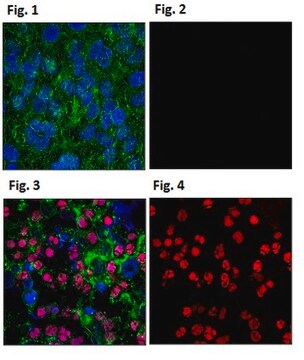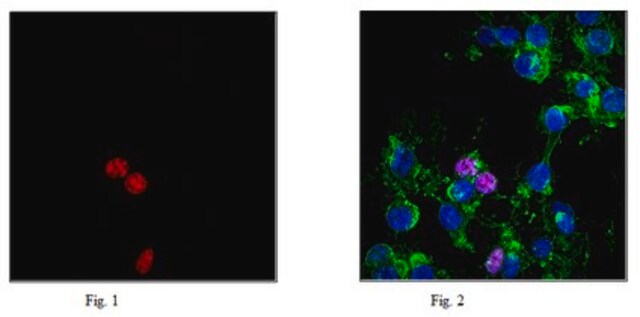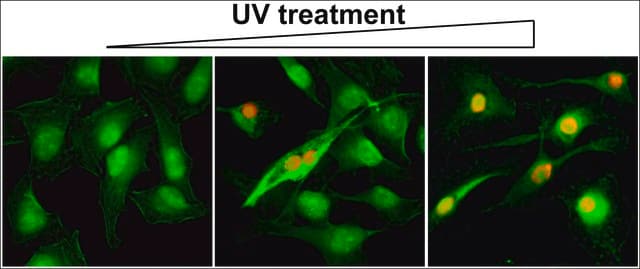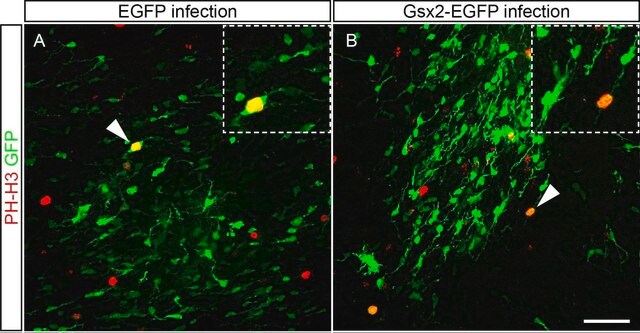05-636-AF488
Anti-phospho Histone H2A.X (Ser139), clone JBW301, Alexa Fluor™ 488 Conjugate Antibody
clone JBW301, from mouse, ALEXA FLUOR™ 488
Synonym(s):
Histone H2AX, H2a/x, Histone H2A.X
About This Item
Recommended Products
biological source
mouse
Quality Level
conjugate
ALEXA FLUOR™ 488
antibody form
purified antibody
antibody product type
primary antibodies
clone
JBW301, monoclonal
species reactivity
human
species reactivity (predicted by homology)
vertebrates (based on 100% sequence homology)
technique(s)
immunocytochemistry: suitable
isotype
IgG1
NCBI accession no.
UniProt accession no.
shipped in
wet ice
target post-translational modification
phosphorylation (pSer139)
Gene Information
human ... H2AX(3014)
General description
Application
Quality
Immunocytochemistry Analysis: A 1:100 dilution from a representative lot detected phospho-Histone H2A.X (Ser139) in Staurosporin treated HeLa cells, and not in untreated HeLa cells.
Target description
Other Notes
Legal Information
Not finding the right product?
Try our Product Selector Tool.
Storage Class
12 - Non Combustible Liquids
wgk_germany
WGK 2
flash_point_f
Not applicable
flash_point_c
Not applicable
Certificates of Analysis (COA)
Search for Certificates of Analysis (COA) by entering the products Lot/Batch Number. Lot and Batch Numbers can be found on a product’s label following the words ‘Lot’ or ‘Batch’.
Already Own This Product?
Find documentation for the products that you have recently purchased in the Document Library.
Our team of scientists has experience in all areas of research including Life Science, Material Science, Chemical Synthesis, Chromatography, Analytical and many others.
Contact Technical Service








